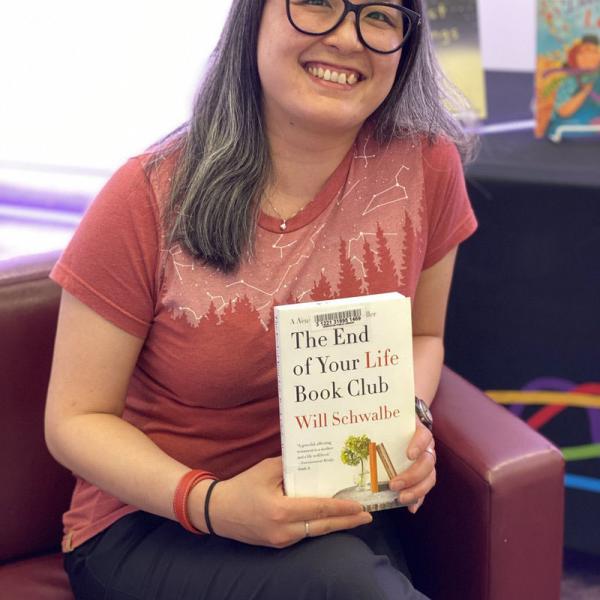Talk about death and dying
Death is a universal experience, yet our reactions to discussing it vary greatly. Explore the following resources to learn more and start the conversation about death and dying.
Some openly embrace conversations about death, while others avoid the topic entirely. Here, we strive to use inclusive and respectful language when addressing death and dying.
Why talk about death and dying?
- Support for others: Open and honest discussions about death prepare us to support those who are sick, dying, or grieving. Understanding their needs and wishes allows us to provide meaningful and compassionate support.
- Advance care planning: These conversations encourage meaningful dialogue about advance care planning and palliative care with loved ones and healthcare providers. Ensuring that our medical and personal wishes are known and respected can reduce uncertainty and stress during difficult times.
- Living fully: Being mindful of our mortality can inspire us to make the most of our lives. It helps us prioritize what truly matters, fostering deeper relationships and a greater sense of purpose.
Join a Death Cafe
Death can be a difficult topic for many to discuss. However, there is a growing movement aimed at fostering a more open culture around it. Death Cafe is one of the most well-known initiatives in this movement. Death Cafe events are held regularly across Alberta.
Death Cafe is not a grief support group or a counseling session. Instead, it offers a space for people to come together in coffee shops, libraries, and other comfortable settings to engage in conversations about death and dying, all while enjoying tasty refreshments.
Death Cafe is a global movement. Founded in the UK in 2011 by Jon Underwood and Sue Barsky Reid, Death Cafe has become a global phenomenon, with gatherings in more than 80 countries. These events provide a safe space to discuss death and dying, which, according to Underwood, “helps people make the most of their (finite) lives.”
Host a Death Cafe
Host a Death Cafe in your community to open the door to talking about death and dying with the people around you. Here's how to get started:
- Read our report on Death Cafes in Alberta. This report summarizes research on Death Cafes and shares findings from a survey and focus groups we conducted with Alberta facilitators.
- Watch our ECHO session Introducing Death Cafe: Facilitating Conversations about Death Over Coffee, Tea and Cake.
- Access the Death Cafe Facilitator Guide for step-by-step instructions.
- Join the Alberta Death Cafe facilitators Facebook group to access additional resources, meet fellow facilitators and support one another.
Talking about death
A new collaboration between the Covenant Health Palliative Institute and Edmonton Public Library seeks to make conversations about death easier for people.
ReadMay 04, 2022

More resources
Free conversation starters
Cards on Life, Death and Loss: A set of cards developed by Paradigm UK to start meaningful conversations.
Death Over Dinner: This site provides selections for guests to read, listen to, and watch in preparation for an unforgettable dinner conversation.
Die-alogues: A practical guide to planning and hosting community conversations about death and dying by Thunder Bay’s Hospice Northwest.
Tools for purchase
The Death Deck: How well do you know your friends and family? Find out by guessing their responses to a variety of questions about death.
Go Wish Game: Understand and communicate what matters most to you at end of life by sorting cards according to your personal priorities. Available in multiple languages.
GraveTalk: A deck of 50 cards and a facilitator’s guide to encourage small-group conversations about death, dying and funerals. Designed by the Church of England for people of all faiths or none.
Heart to Heart Cards: Bilingual Chinese/English cards created by the Chinese American Coalition for Compassionate Care for facilitating conversations about end-of-life preferences in four areas: spiritual, social, financial and physical.
Hello Game: A game designed to prompt conversations with family and friends "about living and dying and what matters most." An Enterprise Edition is available for use with larger groups.